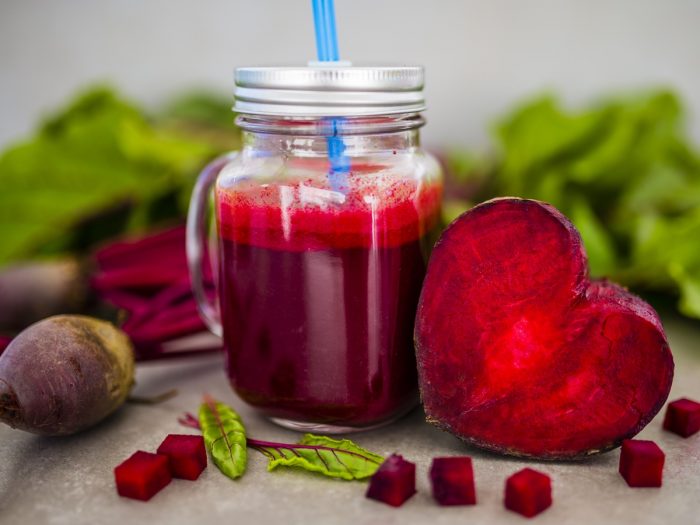Consuming beet juice for high blood pressure is a popular new revelation in natural medicine, but before you change your health routine, it’s best to understand all the details.
Beet Juice for High Blood Pressure
Recent studies have found that beet juice does, in fact, lower blood pressure, which is very good news for those who are struggling with hypertension. There are many natural and pharmaceutical ways to lower blood pressure, such as by taking beta blockers or increasing your potassium intake on a daily basis, and beet juice is the newest remedy on the market. [1]
The study found that within 4-5 hours of consuming 1 cup of beet juice, blood pressure decreased by approximately 4-5 points. That may not seem like a major change, but the clear effect of beet juice on hypertension is exciting. As it turns out, there are inorganic nitrates in high quantities in beet juice, which are converted into nitric oxide in the body. Nitric oxide has vasodilation properties, meaning that it can help to relax blood vessels and arteries, thus reducing the strain on the cardiovascular system. [2]

Try beet juice for its intense earthy and sweet flavors. Photo Credit: Shutterstock
Research is ongoing regarding the long-term impact of drinking beet juice or consuming beets to help improve blood pressure, but the early results are very promising. [3]
Side Effects of Beet Juice
Despite the positive benefits that this unusual vegetable can have on your heart health, there are also some side effects of consuming beets. These include discoloration of your urine, and while this is harmless, it can be a bit of a shock. Furthermore, the high level of oxalic acid in beets can have a negative effect on your kidneys and gallbladder. When you have too much oxalic acid, it can exacerbate the formation of gallstone and kidneys stones. Therefore, always use beets in moderation.
